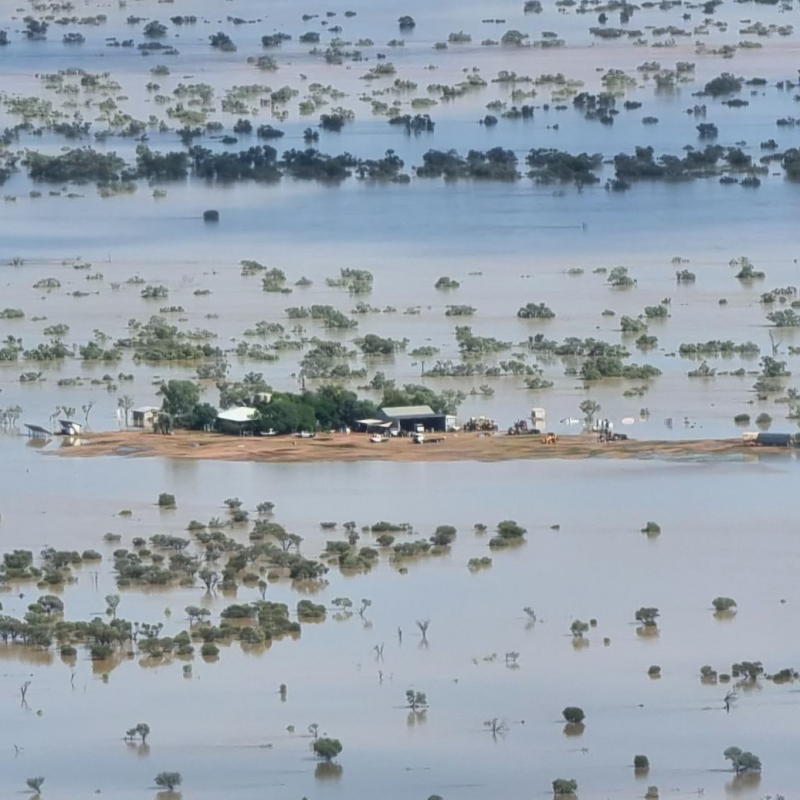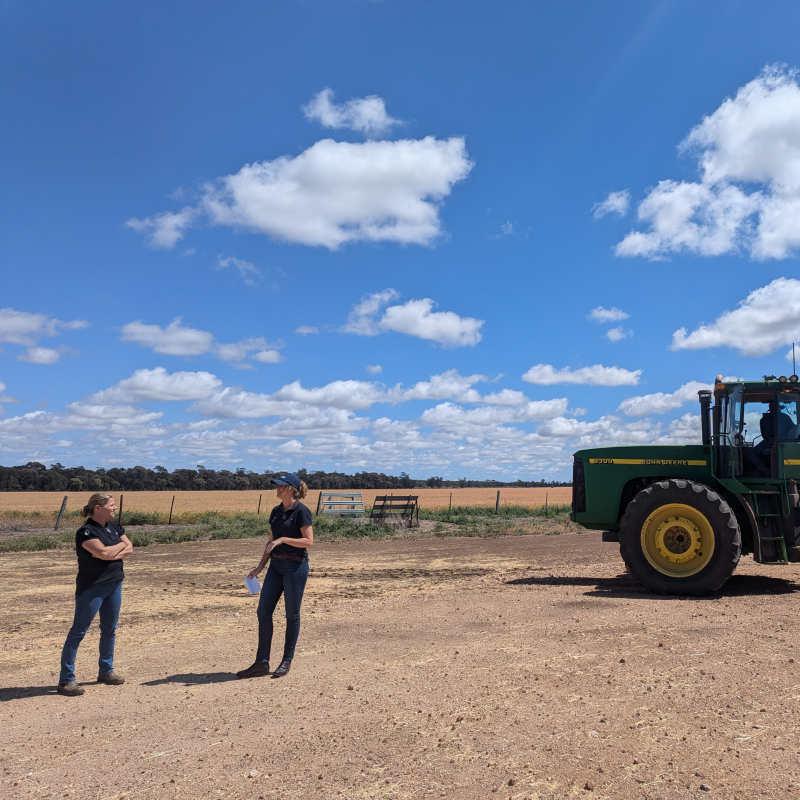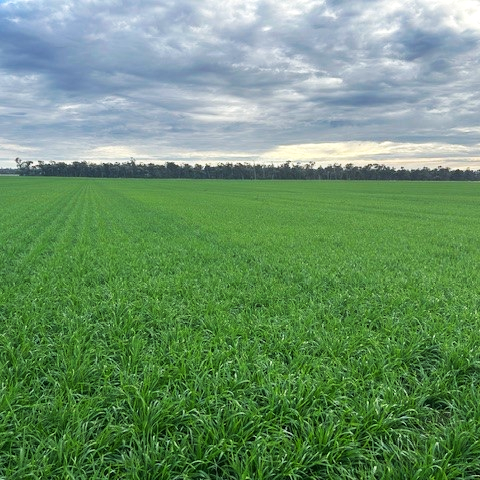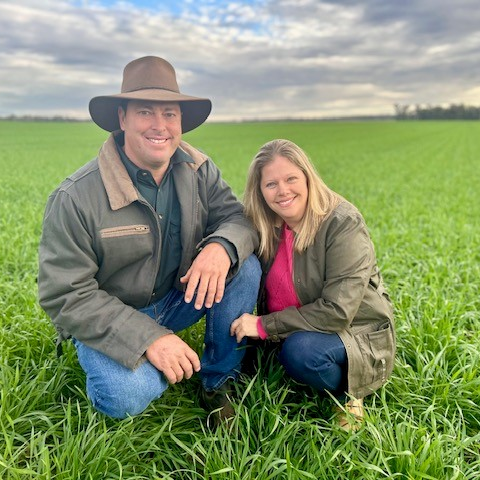Floods a catalyst for producers’ long-term preparedness and recovery
Like many primary producers in Western Queensland, Jason and Chelsea Kidd felt the effects of flooding during Queensland’s extraordinary 2021-22 disaster season.
A series of severe rainfall and flooding events throughout early-2022 severely impacted their mixed cropping and cattle enterprise.
Significant soil erosion and crop and infrastructure damage brought challenges to their operations, dramatically affecting productivity and output.
The experience was a turning point for Jason and Chelsea, helping them recognise the need for a comprehensive, long-term preparedness and recovery strategy that addressed flood risks and improved their business’ resilience.
The Kidds sought support through the Industry Recovery and Resilience Officer (IRRO) Program, an initiative of the Australian and Queensland Governments supported under the joint Commonwealth-state Disaster Recovery Funding Arrangements (DRFA).
Through the program, producers work one-on-one with IRROs to develop individual on-farm flood management plans tailored to the unique needs of their business.
In addition, the Kidds used a Queensland Government Primary Producer Flood Management Grant to extend their efforts even further, with a greater focus on soil management.
The grant provided up to $7,500 for technical advice relating to flood recovery and resilience, which Jason and Chelsea took full advantage of.
Key suggestions from their flood management plan were quickly implemented, with paddocks levelled in strategic areas to improve water infiltration and drainage during periods of heavy rain.
As well as the levelling works undertaken, contoured banks and drainage channels were also constructed.
All earthworks were done utilising the latest in LiDAR mapping technology, an advanced remote sensing method that provides 3D captures of the natural environment.
The result was minimised erosion and topsoil loss, and improved soil and pasture health, and crop production.
The Kidds are today farming with greater confidence than ever, even in the face of increased severe weather throughout Queensland.
Their property and business are both positioned stronger for whatever lies ahead.
Looking forward, Jason and Chelsea are determined to keep improving their resilience so they can continue to manage and care for the country that in turn looks after them.
More on Queensland's IRRO program can be found at www.dpi.qld.gov.au.



